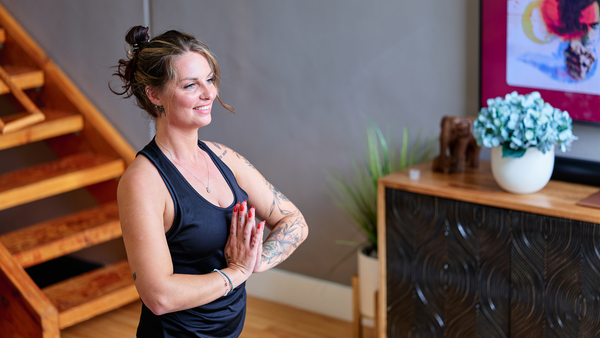By Rose Hughes, Neurodiversity & Disability Officer
‘Why am I so tired?’
Are you nodding along, wondering why fatigue seems to be your constant companion? Well, if the shoe fits Cinderella, then let’s dive into this together, glass slipper and all!
Whether it's the hustle of a busy work season, the demands of family commitments, or simply navigating through a particularly challenging period, certain times in life can leave us feeling utterly drained.
Even holidays and vacations can have the same effect. I've often wondered if anyone actually feels rested after such intense periods. Even without a spouse or children (just me and my feline friend, Mojo), I often find myself feeling like I've hit a wall of exhaustion after even the most enjoyable spurts of time. This year, I even indulged in a marathon sleep session on New Year's Eve, clocking in 14 hours, only to awaken feeling even more fatigued.
But truth be told, it's hardly surprising. Just take a glimpse at what these busy times often come with: loads of unhealthy habits, erratic sleep schedules, a complete disruption of routine, minimal exposure to sunlight and fresh air, all seasoned with a healthy dollop of stress and worry about everything imaginable. No wonder my body rebelled by the time January rolled around, leaving me dragging myself through the early days of the new year.
Recovery from such periods isn't just about waiting for the storm to pass – it requires intentional effort to restore balance and vitality. Whether it's through mindful self-care practices, reconnecting with healthy routines, or seeking support from loved ones, finding a normal routine again is crucial.
How I Reconnect with Myself After a Stressful Season
So, if you find yourself emerging from a turbulent season feeling utterly spent, remember: you're not alone. Take a moment to breathe, prioritize your well-being, and gradually ease back into a rhythm that nurtures both your body and mind. After all, true rejuvenation often begins with acknowledging the need for it.
So, here's the thing – life is inherently stressful. And despite our best efforts to have it all figured out, adulthood feels more like a never-ending juggling act.
Reflecting on the times when stress felt like a distant memory, I can't help but reminisce about the last time I felt most in control. Those blissful two and a half years where I had my health and fitness game on lock. Daily exercise, nature therapy, quality sleep, and nourishing meals were the cornerstones of my routine. I was living my best life, with minimal worries and maximum zen vibes. This was the years before, during, and after the pandemic lockdown. I thrived, and admittedly, I feel like that was another life versus how I have functioned the past year.
I slept well, ate well, trained daily (sometimes twice), and cooked healthy meals with fresh produce. I hiked, biked, walked, ran, sunbathed, swam, and more, even doing some of my workouts from home and online. I journaled at least once a week and kept up with helpful community spaces of like-minded people. I danced, trained and attended Pilates. I read, wrote, and delved deep into my cooking and baking passions. Honestly, I just really had a happy baseline for my day-to-day life, including less pressure from work or social activities.

10 Steps to Recovering from Stress Fatigue
Now, you might think, "Well, why not just replicate that routine now?" Easier said than done. Life has a funny way of throwing curveballs our way, from work woes to health challenges. But hey, progress is progress, right?
So, here are my top 10 action items to help you tackle stress head-on, inspired by my own journey:
- Move Your Body: Even if it's just a short walk or a quick dance session in your living room, get that blood pumping.
- Embrace Nature: Step outside and breathe in the fresh air. (I recommend putting your feet in the cold morning grass - it’s very grounding.)
- Prioritize Sleep: Establish a bedtime routine and aim for those golden seven hours of shut-eye. (I’m happy with six at this stage!).
- Nourish Your Body: Fuel up with nutritious meals and hydrate like it's your job. I also take supplements to better my gut-brain chemistry.
- Practice Mindfulness: Whether it's meditation, journaling, or simply taking a moment to breathe, find what helps you stay grounded.
- Set Boundaries: Learn to say no to things that drain your energy and yes to things that bring you joy.
- Stay Connected: Nurture meaningful relationships and lean on your support system when needed.
- Seek Help When Necessary: Whether it's therapy, counseling, or talking to a trusted friend, don't hesitate to reach out for support.
- Find Joy in the Little Things: Take time to appreciate the small moments of happiness and gratitude in your day.
- Be Kind to Yourself: Remember, you're only human. Cut yourself some slack and celebrate your victories, no matter how small.
So there you have it, folks. Let's kick stress to the curb and reclaim our sparkle, one step at a time. After all, we all deserve that, right?
About the author:
Rose Hughes is a Neurodiversity and Disability Specialist at Bened Life who is based in Belgium. Follow her on Instagram at @rose.llauren
Recommended reading:
What to Know About Neuralli Mood
Three Methods for Natural Stress Relief
What Is the Gut-Brain Axis? How Your Microbiome Can Influence Wellbeing







